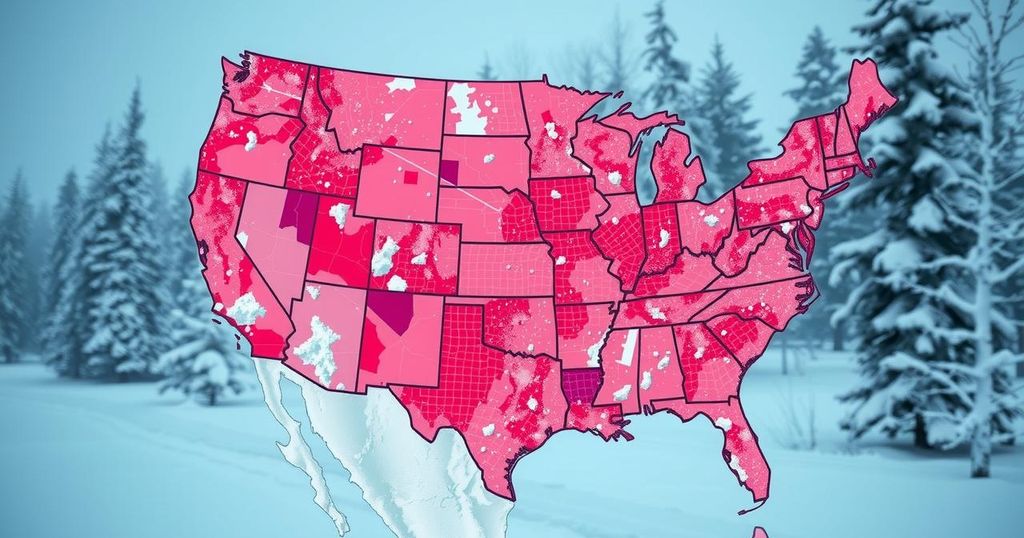Rising Cold Weather Deaths Linked to Climate Change in the U.S.

Research shows a doubling of cold-related deaths in the U.S. since 1999, linked to intensified cold snaps due to climate change. From 2016 to 2022, rates increased notably, with older adults and minority groups particularly at risk. Public health interventions are necessary to protect vulnerable populations from extreme cold exposure.
A concerning trend in the United States reveals that deaths linked to extreme cold weather are on the rise, correlating with an increase in severe cold snaps attributed to climate change. Research published in the Journal of the American Medical Association indicates that such cold-related fatalities have more than doubled since 1999, with rates escalating particularly from 2016 to 2022. The study examined over 63.5 million death certificates, highlighting that conditions associated with cold weather have consistently increased yearly. Vulnerable populations, such as the elderly and certain racial minorities, are disproportionately affected, often facing additional risks such as homelessness and substance abuse, necessitating enhanced public health interventions to safeguard at-risk individuals during harsh winters.
Climate change has a multifaceted impact, including a paradoxical increase in the frequency and intensity of cold weather spells, despite the general warming trend. This study sheds light on a dire public health issue as it correlates environmental changes with rising mortality rates due to cold exposure. The research is significant in understanding who is most affected, indicating the need for targeted interventions to protect vulnerable populations from extreme cold.
The alarming uptick in cold-related deaths in the United States underscores an urgent need for action, particularly for at-risk populations. As weather patterns are changing due to climate change, it is imperative that measures are taken to ensure sufficient heating resources are available to those in need. The findings call for enhanced public health strategies to mitigate the impacts of increasing cold weather on the most vulnerable citizens.
Original Source: www.fox28spokane.com






